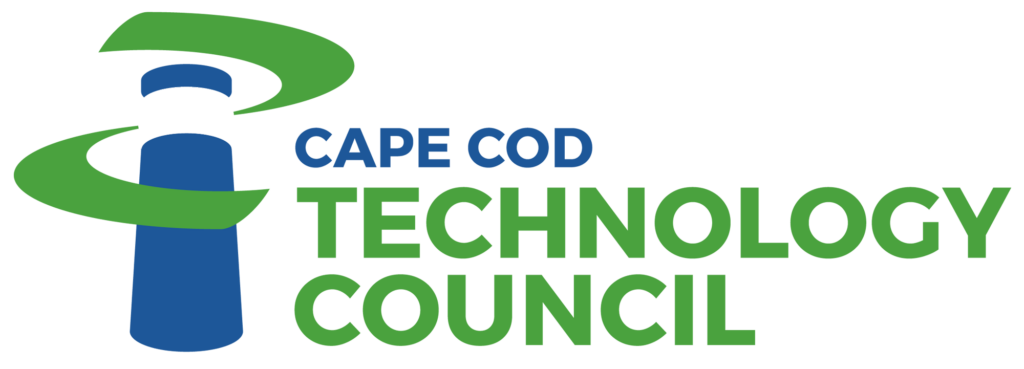 On April 4th, Paul Niedzwieki, Executive Director of the Cape Cod Commission, presented a prototype of the Commission’s new wasterwater planning application to the Cape Cod Technology Council’s Infrastructure Committee. The application, which is still under development, combines GIS mapping, a land and water use database, and cost and rate projection models to enable citizens and planners to evaluate options for improving water quality in Cape Cod watersheds. Committee Chairman Gene Curry observed that the application, which will eventually be web-based, was an illustration of the use of the enhanced capabilities of Open Cape to create a smarter government. The Commission’s goal is have the application ready for public demonstration at the Smarter Cape Summit, which is co-sponsored by the Technology Council.
On April 4th, Paul Niedzwieki, Executive Director of the Cape Cod Commission, presented a prototype of the Commission’s new wasterwater planning application to the Cape Cod Technology Council’s Infrastructure Committee. The application, which is still under development, combines GIS mapping, a land and water use database, and cost and rate projection models to enable citizens and planners to evaluate options for improving water quality in Cape Cod watersheds. Committee Chairman Gene Curry observed that the application, which will eventually be web-based, was an illustration of the use of the enhanced capabilities of Open Cape to create a smarter government. The Commission’s goal is have the application ready for public demonstration at the Smarter Cape Summit, which is co-sponsored by the Technology Council.
Press release from the Cape Cod Commission:
FOR IMMEDIATE RELEASE – April 3, 2012
INFORMATION FROM THE
CAPE COD COMMISSION
Barnstable County
Media Contact:
Paul Niedzwiecki, Executive Director
(508) 362-3828
pniedzwiecki@capecodcommission.org
www.capecodcommission.org/initiatives/wastewater
REGIONAL WASTEWATER MANAGEMENT PLANNING
CCC Showcases New Flexible Application to Visualize Wastewater Management Options
New application, to be presented at SmarterCape Summit, combines dynamic mapping with land use, water use, cost data
BARNSTABLE COUNTY, MA — Cape Cod Commission Executive Director Paul Niedzwiecki today demonstrated a prototype of a new application being developed by the Commission staff to help planners, municipalities, and policy makers explore options for wastewater management solutions for Cape Cod.
The application is under development and will be ready for public demonstration at the SmarterCape Summit (www.smartercapesummit.com) in May 2012.
Combining GIS mapping, land use, water use, costs, and rate projection models, the new application will allow users to dynamically pose “what if” questions about small-scale, large-scale, and green infrastructure approaches to improving water quality in watersheds throughout Cape Cod. The results will help users visualize potential approaches.
When finished, the application should be able to predict the relative costs of options and to demonstrate differences between an individual town’s approach and any possible regional approach to a range of appropriate solutions.
“We’re interested in letting the facts not only speak for themselves, but also demonstrate the many possibilities,” Niedzwiecki said. “Our interests are in finding solutions that are both good for the environment and good for taxpayers. There is no ONE answer. We have been consistent in recognizing that the solution will be as diverse as the problem is complicated.”
The Cape Cod Commission has established several online options for the public to monitor progress on wastewater management planning across the region:
- Web: www.capecodcommission.org/initiatives/wastewater
- Facebook: www.facebook.com/CCWastewater
- Twitter: www.twitter.com/#!/CCwastewater
- Email: wastewater@capecodcommission.org
—————————-
ABOUT THE CAPE COD COMMISSION:
Cape Cod Commission is the regional land use planning, economic development, and regulatory agency created in 1990 to serve the citizens and 15 towns that comprise Barnstable County, Massachusetts, better known as Cape Cod. The Commission works toward maintaining a healthy balance between economic progress and environmental vitality. “Keeping a special place special” describes the agency’s mission to protect the region’s unique qualities. The 19-member volunteer Cape Cod Commission board represents a wide spectrum of the community and provides oversight for a staff of 40 professionals. The Commission is responsible for regional planning, policy, and regulations to help manage growth, and the agency supports the Cape’s 15 towns with cost-effective planning and technical services. For more information, visit: www.capecodcommission.org
